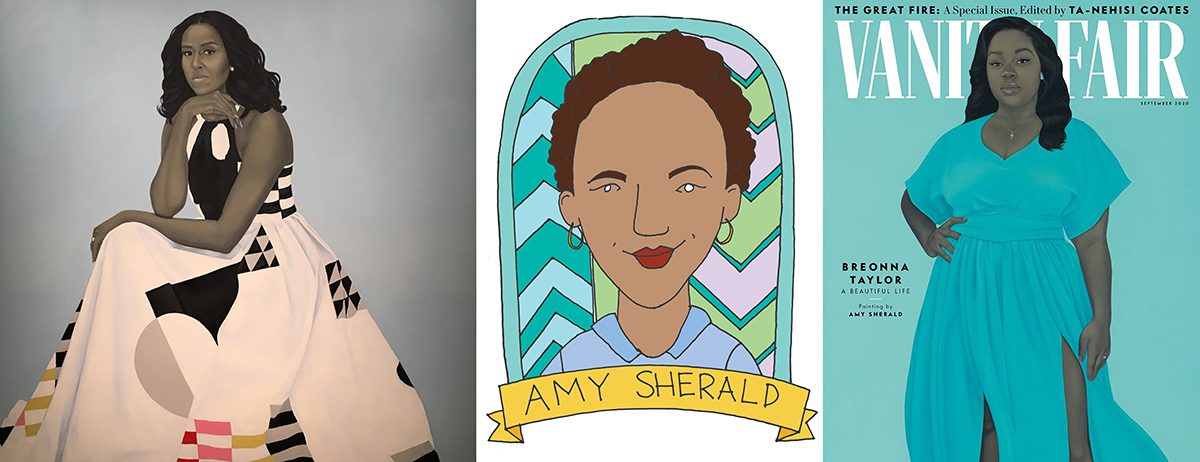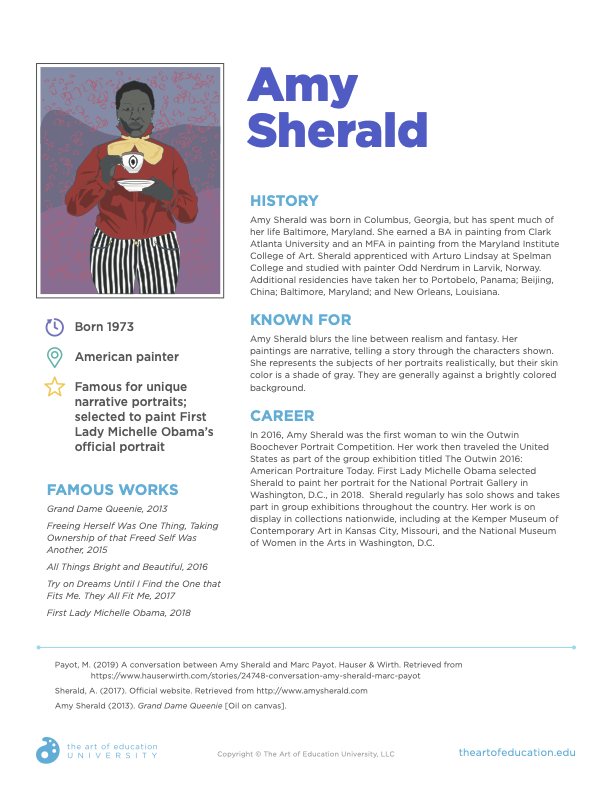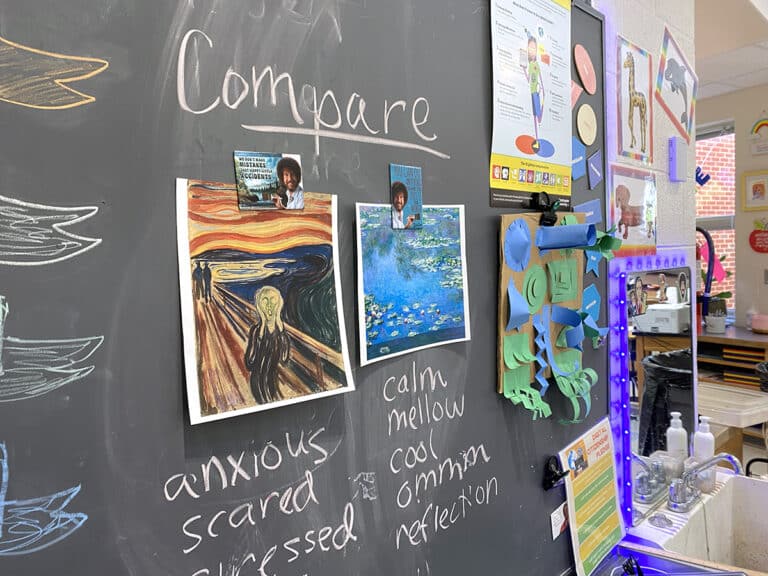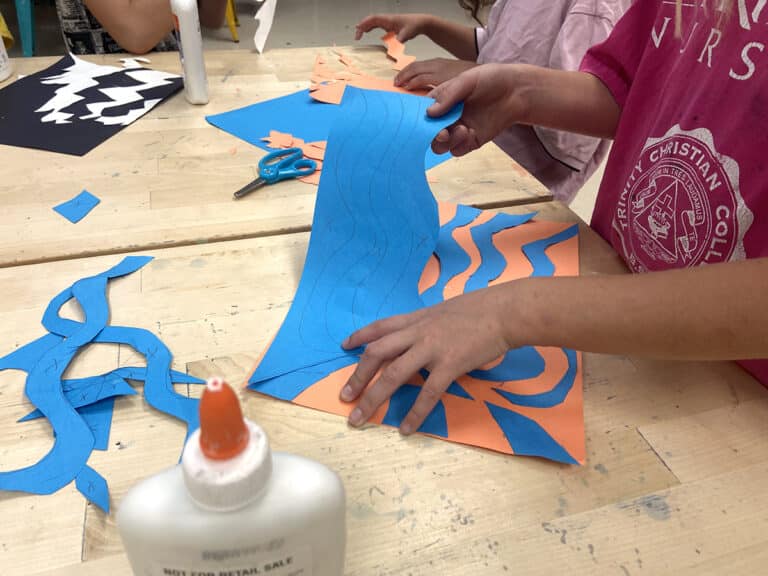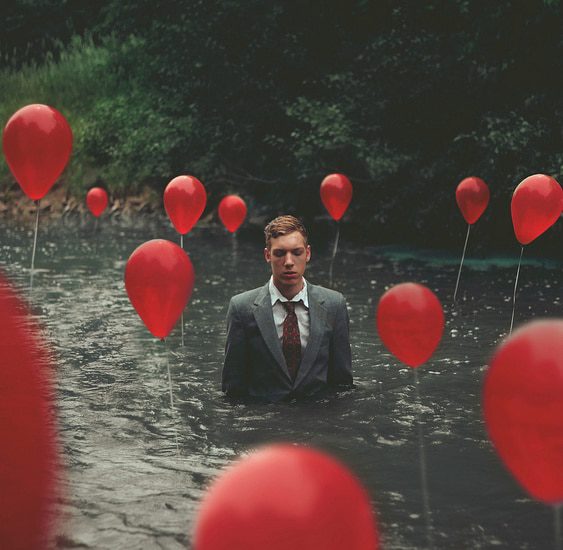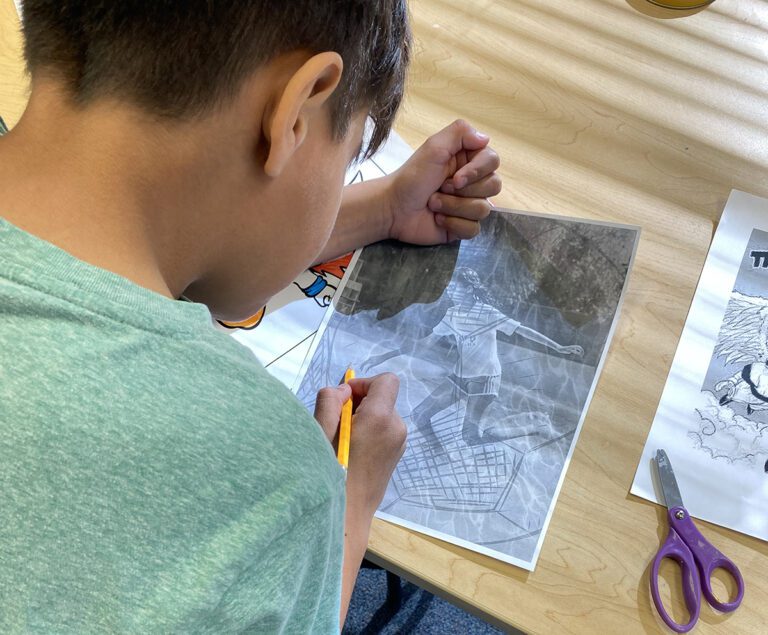Artist of the Month bulletin boards are a fun way to decorate your room and integrate art history all at once. Oftentimes, showcased artists include classics such as Matisse, Picasso, and Renoir. But why not re-imagine an Artist of the Month board to feature underrepresented artists instead? In doing so, you challenge stereotypes and introduce students to artists who are actively creating artwork. The artists selected for display can also reflect what the students are learning in a particular unit.
This does not need to be “more work.” With careful consideration, the process can be impactful without creating an excessive burden on you. You can also get your students to do the work as part of an art club, a warm-up activity, or for service hours. Students will research, create the components, and construct the final display.
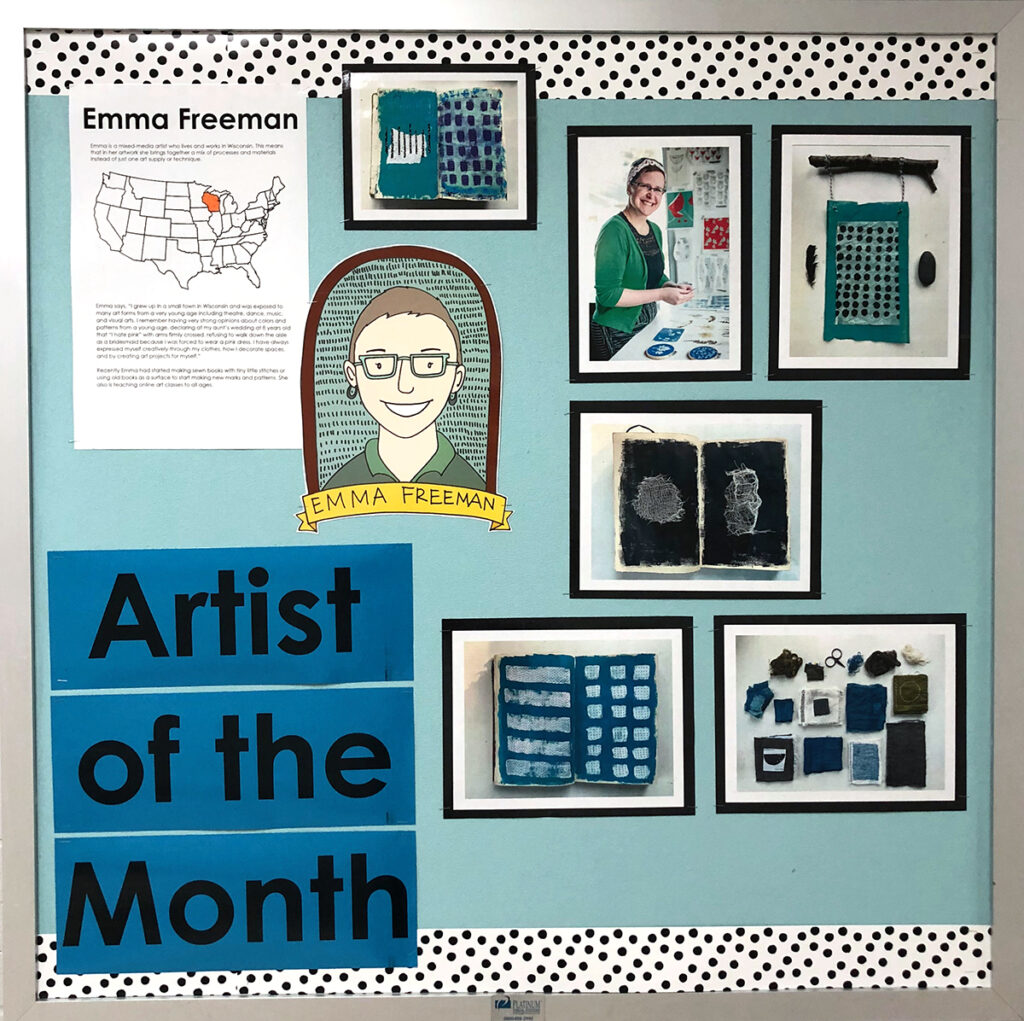
Let’s look at how you can create a stress-free display that focuses on contemporary women artists.
Location. Location. Location.
It is important to consider where to establish the Artist of the Month board. The art room is a natural choice, as you can easily refer to it during lessons or impromptu discussions. However, consider a location in the hallway outside of the art room. Displaying the contemporary women artists and their work in view of anyone walking by will establish what you care about to the entire school. Intentionally showing that your classroom is a safe space for all will speak volumes to your students. It is also a way to bring color and inspiration to halls that are often bland and blank.
Fellow teachers and staff can also learn from your board. At my school, the Artist of the Month board is in the hallway outside my room. Teachers often stop and ask questions or share a connection to the work on the board. These interactions would be far less frequent if the displays were behind closed doors.
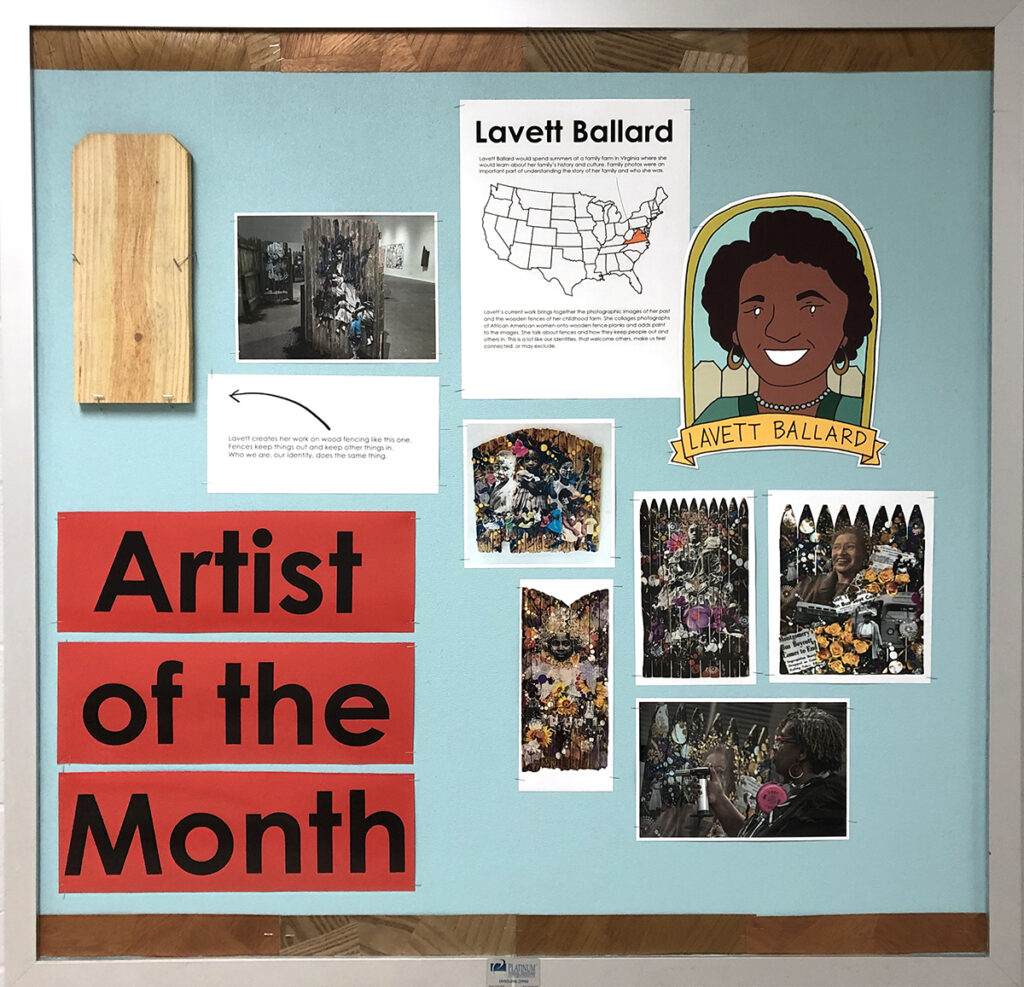
What Do I Include?
There are many things that can be included in an informational display about an artist.
Here are some suggestions:
- Images of the artist at work
- The artist’s most notable pieces
- Map highlighting the school’s location versus where the artist lives and works
- Short biography
- Examples of supplies the artist uses
You could try illustrating a portrait of each artist and then make a second copy to put on display in the classroom.
If you don’t have time to craft your own short biography, we have you covered! Our FLEX collections include hundreds of artist biographies. Below is a complimentary downloadable bio to get you started with your contemporary women Artist of the Month board. Find all of these incredible bios and resources along with our vast collection of lessons in FLEX Curriculum.
Download Now!Plan for Flexibility.
Deciding to maintain the Artist of the Month board does take commitment. If the notion of changing out the artist every month seems overwhelming, then don’t. Instead, call it a “Featured Artist.” This creates flexibility in how often you change the display. Remember, the featured artists do not need to connect to any work happening in the art room. The board can also highlight artists you want students to know about that you don’t have the time to cover in a unit during class. You can also select artists based on Commemorative Observances or Heritage Months to tie into broader conversations happening throughout the school building.
September to June—10 Contemporary Women Artists
Excited, but don’t know where to start? Here are ten artists to get your display off the ground in the first year.
- Amy Sherald
Sherald was born in Columbus, GA and now lives and works in New York. She painted African American portraits for years, but her portrait of Michelle Obama catapulted her work into the public eye. She paints her subjects in grayscale, wearing bold, colorful clothing against vibrant backgrounds.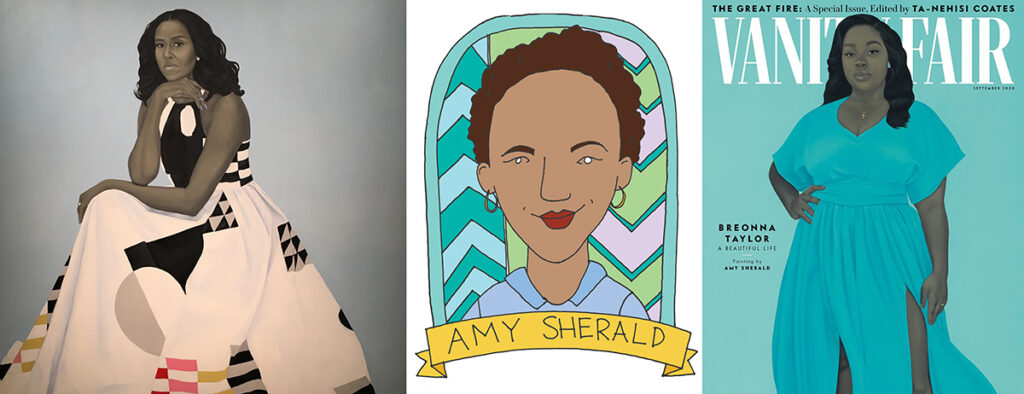
https://archive.vanityfair.com/issue/20200901 - Kathleen Carlo-Kendall
Kendall lives in Fairbanks, AK, and is a member of the Koyukon Athabascan. She grew up learning beadwork, which is a significant medium in her culture. Later, she learned wood carving and emerged as one of the first Alaskan native women woodcarvers. She carves imaginative wooden masks inspired by the diverse native cultures of Alaska.
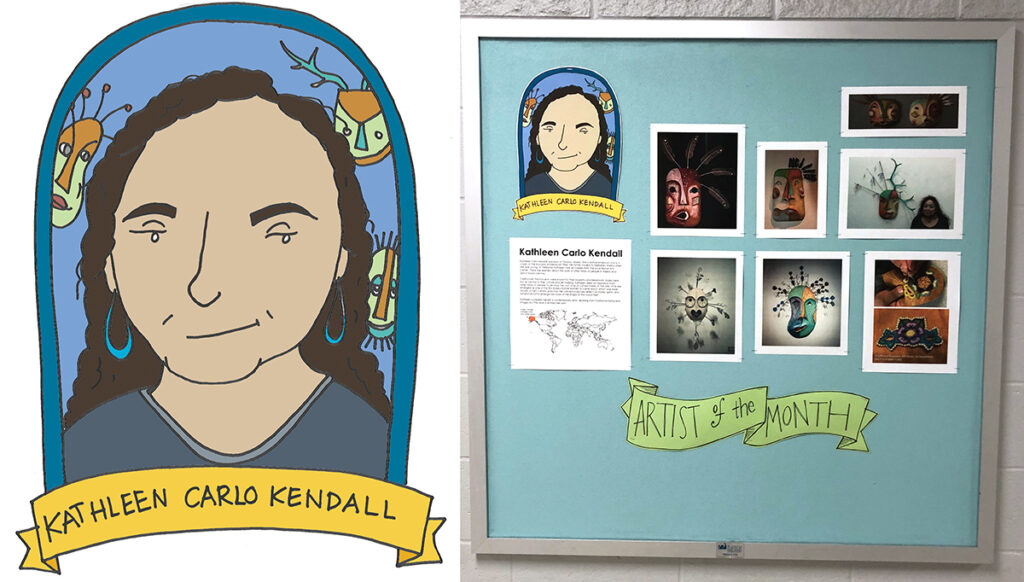
- Emma Freeman
Freeman is a mixed-media artist, poet, and teaching artist living in Oconomowoc, WI. She creates illustrations, cyanotypes, artist books, fiber arts, and assemblages using found natural objects. For more on this artist and how to infuse nature into your studio and classroom practices, check out this article. - Hung Liu
Liu was born in China and now resides in Oakland, CA. Trained as a muralist, Liu’s signature style involves large-scale historical portraits of everyday people. Areas of dripping paint and linseed oil flow down her paintings.
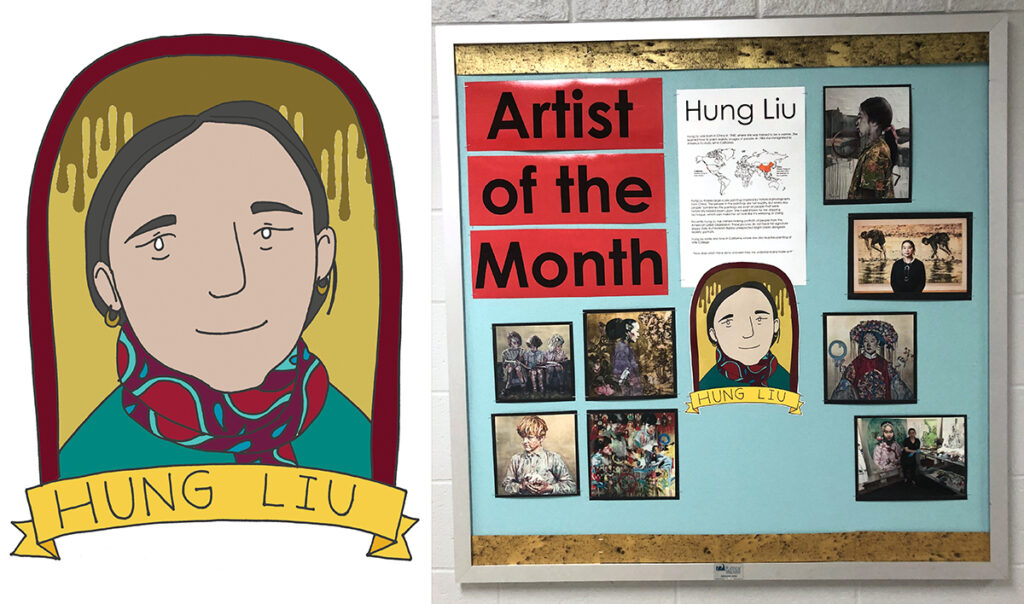
- Oge Mora
Mora was born in Columbus, OH, and now lives in Providence, RI. She is an author, illustrator, and collage artist. Mora combines paint and painted papers to tell stories of human connection. - Lavett Ballard
Ballard paints and collages onto discarded fencing. Through her work, she reflects on identity and the stories of Black women. Fences keep some people in and others out, just as aspects of our identities do the same. - Geninne Zlatkis
Zlatkis resides in Santa Fe, NM. She works with many materials, including paint, found paper, ceramics, leather, hand-carved rubber stamps, jewelry, and more. Stylized bird imagery dominates her diverse work. - Bharti Kher
Kher lives and works in New Delhi, India. She creates paintings, sculptures, and installations that focus on identity. She frequently includes traditional bindi in her work to examine the dot’s cultural and personal meaning. Much of her work straddles the line between serious and incredibly playful. - Jennifer Crowe
Crowe is an artist living and working in Cincinnati, OH. She is an artist who works with Visionaries and Voices, a nonprofit organization for artists with disabilities. Her works on paper take multiple forms. She creates collages of gem-like shapes composed of crayon and oil pastel. Her text-based work is a stream of consciousness that focuses on her experiences and observations. - Ellen Bepp
Bepp is a California-based mixed-media artist who is also an accomplished taiko drummer. As a Japanese-American, Bepp finds artistic inspiration from the traditional art and textiles that are a part of her family’s story. Her recent work includes hand-cut text.
An Artist of the Month board does not need to be a ton of extra work. With the outline of ten contemporary women artists above, a big portion of the planning is already done. Focusing on a particular group or genre of up-and-coming artists introduces students and staff to possibilities outside of the traditional artistic canon. Get ready for conversations to spark and inspirations to soar if you give this display a try this year.
Looking for other themes or genres to include in your Artist of the Month board? Check out these compilations:
- 10 Fantastic Fiber Artists Your Students Will Love
- 10 Watercolor Artists to Inspire Your Students
- 11 Fascinating Artists Inspired by Science
- 10 Digital Artists You Should Know
- 10 Mixed Media Artists to Inspire You and Your Students
- 17 Black Artists to Know (Ep. 222)
- 10 Inspiring Ceramic Artists to Share With Your Students
- 12 Street Artists (Not Named Banksy) Your Students Should Know
What contemporary women artists would you add to this list?
What Commemorative Observances or Heritage Months does your school or community recognize? What artists can you introduce to your students that align with these observances?
Magazine articles and podcasts are opinions of professional education contributors and do not necessarily represent the position of the Art of Education University (AOEU) or its academic offerings. Contributors use terms in the way they are most often talked about in the scope of their educational experiences.
